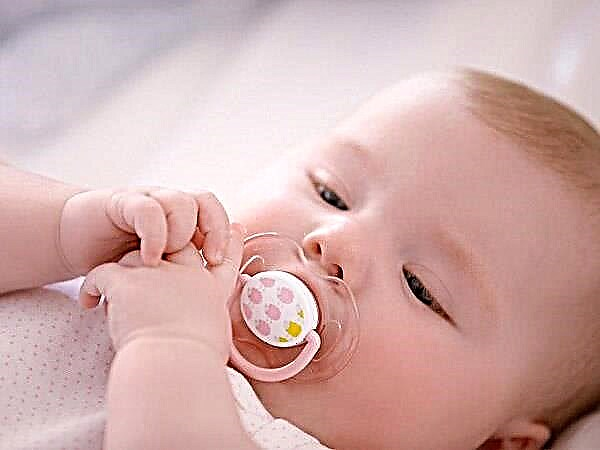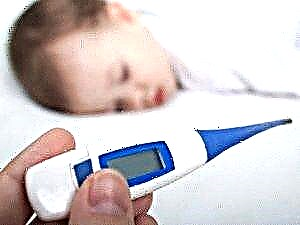A child's cough at night makes the mother feel especially acute, because the whole family does not sleep because of it. A child who does not get enough sleep will be lethargic and capricious all the next day, will not let his mother think about business, constantly demanding attention and affection. Surprisingly, often the baby does not cough at all during the day, and as night falls, the dangerous symptoms return.

Night attack
What is a child's night cough
Cough is called nocturnal because it manifests itself mainly at night. During the day, the child can feel quite healthy, play actively and not complain of a sore throat, but as soon as he is put to bed, it is not clear where the cough comes from.
Interesting! If you look into a child's mouth, then no inflammation, redness or swelling will be found.
Why does a baby cough at night
There may be several reasons why a child coughs at night but not during the day. At first glance, it may seem that the child is sick, because he has a cough. Often this symptom is not accompanied by typical concomitant signs of an infectious disease, that is, the child lacks:
- increased body temperature;
- general weakness of the body;
- violation of appetite;
- sore throat.
The main thing that parents should remember is that no one ever cures a cough. You can treat the disease that caused the cough. Only in this case it will be possible to get rid of annoying attacks. Therefore, the first step is to determine what exactly caused the cough.
Moist cough
A moist and ringing cough occurs only when mucus is present in the trachea or lower respiratory tract. Then, with the help of cough pushes, it comes out, which is why the cough has a characteristic sound.
If this cough is not accompanied by other symptoms, the cause is most often posterior rhinitis. This is a diagnosis that is made when a child or an adult has an inflamed posterior part of the passages located deep in the nasal cavity. In this case, the snot does not flow from the nostrils in the usual way, but falls down the nasopharynx. During the day, when the child jumps and plays actively, mucus does not bother him - he pushes it with saliva when he swallows. When you go to bed, the activity of the secreted saliva and the frequency of swallowing are significantly reduced, due to which mucus accumulates somewhere in the trachea, irritating the mucous membranes and cough receptors. This is what causes the nighttime cough.

Runny nose
In order to eliminate the cough, it will be necessary to find out the reason for the excess mucus formation in the posterior parts of the nasal passages. Teething is the most common cause of posterior rhinitis in children aged 6 months to 1 year. The gums, when inflamed, swell so much that along with them the mucous membranes of the nose become inflamed. That is why snot begins to appear, flowing back.
The second most common cause of a wet night cough is the use of a pacifier. When the baby sucks on the nipple, falling asleep, the salivary glands are actively working in his oral cavity, producing a secret. Having accumulated over the tongue, saliva tries to drain down the throat. If the child is already sound asleep, the activity of the swallowing reflex decreases, due to which the saliva irritates the throat, dropping lower than provoking a cough at night in the child sucking on the nipple.
Dry cough
A dry cough that occurs at night is most often the result of irritation of the mucous membranes of the pharynx. If there are no accompanying symptoms, an allergic reaction should be suspected, since it is she who can dry out the mucous membranes and cause a dry, tearing cough.
Attention! A dry allergic cough that manifests itself only at night is an occasion to check the child's sleeping place for allergens.
When a baby is taken outside for the whole day, for example, on a balcony or yard, he breathes fresh air, enriching his body with oxygen. If the children's room where the baby sleeps at night is stuffy, dry and dusty, the child's airways will surely react with a tearing cough.
The second reason for the development of an allergic reaction can be scented bedding. If the sheet, duvet cover and pillowcase are washed, like all adult things, in aggressive solutions of washing powder or gel, the sensitive mucous membranes of the child's respiratory tract will make themselves felt.

Washing baby clothes
Cough, violent, with attacks before vomiting
A child's nocturnal cough that ends in vomiting may be whooping cough. If the infant has not been vaccinated against this severe bacterial disease, he is at risk of infection. A characteristic feature of whooping cough is a paroxysmal cough that ends in vomiting. The danger of the disease lies in the fact that even after the destruction of bacteria in the body, a toxin is present for a long time, which affects the cough center of the brain. Because of this, even after prolonged and productive treatment, a terrible cough can continue to mock the child for several months.
Diagnosis of the causes of cough
When a child constantly coughs at night, you need to see a pediatrician for help. Already on a routine examination of the oral cavity and the root of the tongue, the specialist will be able to see the mucus flowing down the back of the pharynx, if the problem lies in posterior rhinitis.
To diagnose allergic reactions and bacterial infections, you will need to donate blood for analysis. In addition to laboratory research, mom herself must analyze what was so new on the day when the night cough appeared. Most likely, the cause will be a simple mistake in the use of household chemicals or stale air in the room.
Why is a night cough dangerous?
Attacks of nocturnal cough are dangerous primarily because at the time when the baby may need help, everyone is asleep. If a baby spends the night in a separate room, adults may not hear him. A wet cough, associated with the movement of a large amount of phlegm through the airways, is dangerous because a large lump of thick mucus can block the airway, which can simply suffocate the baby.

Baby alone in the crib
Helping your child correctly during an attack
If your baby has a prolonged coughing fit, you shouldn't pound on his back, slap his neck or perform any other physical actions. It is imperative to give the opportunity to clear your throat without interrupting this process. The most important thing at this point will be the quality of the air that the child will inhale immediately after the attack is over. Therefore, as soon as the child coughed, it is necessary to open the window and ventilate the room.
With swelling of the tonsils, which interferes with breathing, a spoonful of ice cream will help - the cold, acting on the swollen tissues, will quickly help the dilated vessels return to their normal state, which will certainly relieve the edema.
The feasibility of using antibiotics
Antibiotics are drugs that fight bacteria. Their use is advisable only in the case when the normal functioning of the body is disturbed by any bacteria. Therefore, antibiotics will not work if the cough occurs for the following reasons:
- infection with a viral infection;
- Excessive salivation due to teething or pacifier sucking
- allergic reaction;
- ingress of a foreign body into the respiratory tract.
If the child is sick, and the diagnosis made suggests that the general condition was violated by a pathogenic bacterium, the doctor will definitely prescribe antibiotic treatment that will rid the body of the pathogen.
Important! It is necessary to show the coughing child to the doctor, because in case of infection with a bacterial infection, you need to start treating the baby as soon as possible. The body itself is unlikely to be able to stop the development of the disease.
Dangerous help
Today it is not difficult to obtain a wide variety of cough suppressants. Pharmacies are overflowing with drugs that affect the body in different ways. When parents have no time to understand the causes of a cough, they believe that a drug from a popular advertisement will help get rid of it. This is one of the most dangerous misconceptions that makes home treatment a cause of respiratory arrest.
Cough medicines sold in a pharmacy can be roughly divided into three groups:
- antiseptics;
- drugs that thin and remove phlegm;
- drugs that turn off cough at the level of the cough center in the brain.
Each direction is effective when applied when indicated and not thoughtlessly. Otherwise, experimenting with drugs can end in disaster.
For example, giving the child a sputum-thinning drug in the evening before bedtime, the whole family will probably lose rest for the whole night, because the baby's respiratory tract will actively produce phlegm, and the cough cilia on the walls of the mucous membranes become irritated, provoking more and more coughing fits. removing liquid sputum.
If you give a baby, who has begun to cough up well, a drug that "turns off" coughing, you can get pneumonia, because actively produced phlegm will accumulate in the lungs and bronchi, and pathogenic bacteria will start to multiply in it with pleasure.

Child and medications
The thoughtless use of antibiotics will lead to the fact that the intestines will be significantly affected, because many of the bacteria inhabiting it will die, which will disrupt the already unstable digestion of the baby. Self-administration of antibiotics makes many bacteria resistant to the active ingredient of the drug. This means that when the time comes for the mandatory antibiotic intake as prescribed by the doctor, the medicine will not be able to help.
Reasons to call an ambulance
The need to call a doctor should not be questioned when it comes to an infant under three months old, even if he is just starting to cough. It is recommended to call a team of specialists when:
- the child began to choke;
- a runny nose torments the child for more than seven days;
- the attacks are markedly intensified;
- it is not possible to calm the child down for several hours;
- the temperature has increased significantly.
Attention! Always, when the free breathing of the baby is disturbed, you need to seek help from specialists.
Komarovsky about a night cough
The doctor of the highest category, Evgeny Komarovsky, recommends adhering to three rules to reduce the manifestations of nocturnal cough caused by posterior rhinitis:
- Raising the side of the mattress on which the sleeping child's head is located will significantly reduce the rate of accumulation of flowing mucus in the trachea, which means that the baby will stop coughing during sleep.
- Monitor the air condition in the room where the child sleeps: it should be warmed up to no more than + 20˚C, with a humidity of 55 to 65%.
- Before going to bed, rinse your nose with purchased saline or prepared salt water.
The number of allergic reactions that occur against the background of non-compliance with the conditions depends on how the air parameters in the room where the child lives are conscientiously observed.
Preventive measures
In order not to think about how to relieve a child's night cough, it is better to take care of the prevention of dangerous symptoms. First of all, you need to remove all aggressive household chemicals from the house, especially those that contain chlorine. The most common mistake of the older generation is the desire to disinfect the room where the baby lives by wet cleaning with chlorine. This chemical element, possessing a pungent characteristic smell, becomes the first reason why the baby will begin to cough. If the concentration of chlorine in the solution with which the surfaces were treated was high, the volatile chemical element will easily settle on the mucous membranes and cause burns in the respiratory tract.
It is better to remove all soft toys from the children's room and minimize the amount of carpets on the walls and floors, as these items are excellent dust collectors. The ideal nursery contains a crib, changing table and a smooth, washable floor. Wet cleaning in the nursery should be carried out regularly, but you do not need to do this with household chemicals. Warm water and a cloth soaked in it will suffice.
Airing the room before bed is a must for proper breathing. Even if it's winter and freezing temperatures outside, fresh air full of oxygen will soften the dry warm room and help the baby sleep soundly.

Airing
There are many reasons for a baby's cough, most often the baby can simply start choking on milk. If at night there are suspicious symptoms that interfere with the baby's sleep, it is better to consult a pediatrician, at least in order to relieve the stress that grows from the fact that the mother concocts terrible diagnoses for her child, when in fact the growing milk teeth are to blame.



